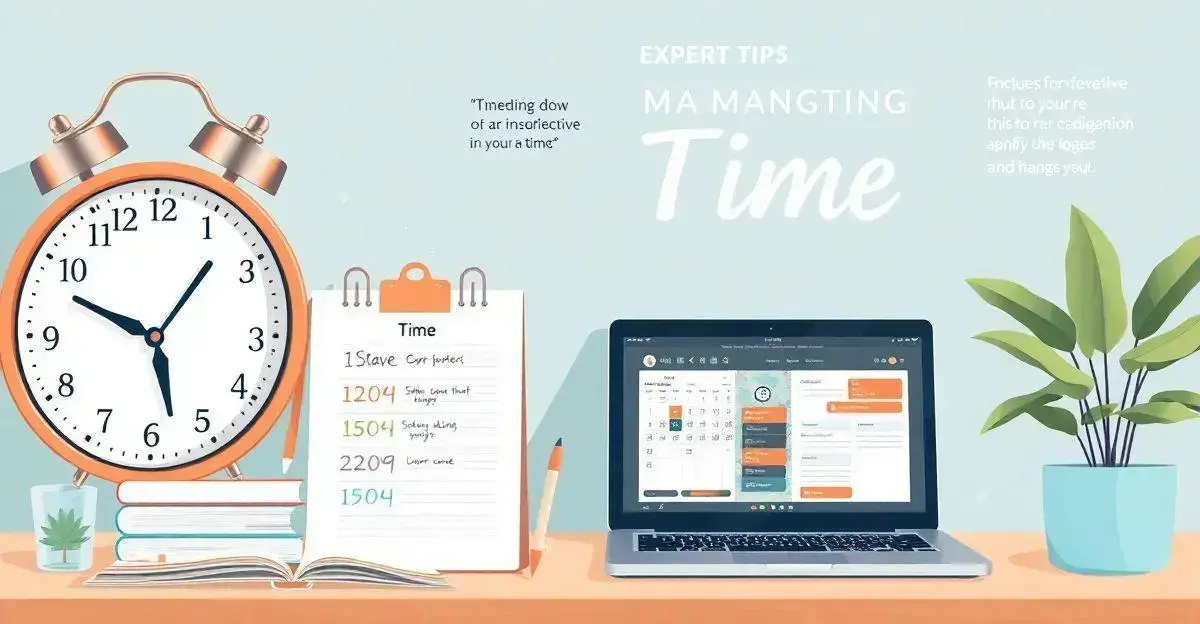Work Life Balance Books: Top Reads for a Balanced Life
Work life balance books are a great resource for anyone looking to improve their time management and overall well-being. These books offer practical strategies to help you balance work and personal life, making it easier to stay productive without burning out.
Whether you’re struggling with work stress or just trying to make more time for yourself, these books provide valuable tools and insights. They show you how to set boundaries, manage your time, and prioritize self-care.
Curious to learn more? Keep reading to discover the top books that can help you achieve a better work-life balance.
Understanding Work Life Balance
Understanding work life balance involves recognizing the importance of managing your time effectively to ensure both professional and personal satisfaction. Achieving this balance is essential for mental and physical health.
It helps to prevent burnout and enhances productivity in the workplace. Work life balance means different things to different individuals, as everyone has unique commitments and priorities. Work life balance books can offer valuable insights into finding this equilibrium and implementing strategies that work best for you.
To attain a healthy balance, it’s crucial to set clear boundaries between work and home life. This can be accomplished by implementing simple strategies like scheduling specific work hours and minimizing distractions at home. Additionally, utilizing tools such as calendars and task management apps can help in organizing your daily responsibilities efficiently.
Moreover, engaging in activities outside work, such as hobbies or spending time with family, is vital. These activities serve as a refresher and motivate you to perform better at work. Remember, prioritizing self-care and mental health is not selfish; it’s necessary for long-term success and happiness.
Top 10 Work Life Balance Books
Top 10 work life balance books can provide guidance on how to create a healthier lifestyle. These books explore various techniques and strategies to help maintain a balance between personal and professional demands. Here are some must-read titles:
- The 4-Hour Workweek by Tim Ferriss – This book offers practical advice on time management and productivity.
- Atomic Habits by James Clear – Clear discusses how small changes can lead to significant improvements in life and work.
- Essentialism: The Disciplined Pursuit of Less by Greg McKeown – This book emphasizes focusing on what truly matters.
- Deep Work by Cal Newport – Newport illustrates strategies for working smarter and avoiding distractions.
- Mindset: The New Psychology of Success by Carol S. Dweck – This title explores the power of having a growth mindset.
- Braving the Wilderness by Brené Brown – Brown talks about the importance of belonging and authenticity.
- Off Balance by Matthew Kelly – This book teaches readers how to create a self-care strategy.
- Work Simply by Carson Tate – Tate shares insights on simplifying work life to enhance productivity.
- Rest: Why You Get More Done When You Work Less by Alex Soojung-Kim Pang – This book discusses the importance of rest and recovery.
Each of these books addresses challenges faced in achieving a work life balance. Readers can find various approaches to understanding their time and priorities, allowing them to craft their unique path toward balance.
How Books Influence Balance
How Books Influence Balance can be significant in shaping our perspectives on life and work. Reading can provide insights and new ideas that encourage better management of time and stress. Work life balance books often present real-life examples and strategies, helping readers to understand various approaches to achieving balance.
For instance, when people read about successful individuals who have managed to balance their careers with personal lives, it can inspire them to follow similar paths. Through storytelling, readers can identify with characters facing challenges, thus learning effective coping mechanisms.
Moreover, self-help books usually offer actionable tips and exercises to improve personal skills. These resources empower readers to implement change gradually, leading to a more fulfilling life. The influence of books extends beyond mere entertainment; they can be a roadmap to a harmonious lifestyle.
Reader Reviews and Recommendations

Reader Reviews and Recommendations provide valuable insights about books that focus on work life balance. Many readers share their experiences after completing these books, highlighting helpful strategies and concepts they discovered.
For example, some reviews emphasize the importance of time management techniques discussed in titles like Atomic Habits by James Clear. Readers often appreciate how this book simplifies habit formation, making it easier to implement changes in daily routines.
Others recommend Essentialism by Greg McKeown, as it teaches readers to focus on what is truly essential and declutter their schedules.
Furthermore, reader recommendations often highlight specific chapters that resonate with them. This feedback can guide potential readers in choosing which work life balance books will meet their needs the best. Online platforms and book clubs are excellent resources for accessing these reviews and recommendations.
Implementing Ideas from Literature
Implementing Ideas from Literature can greatly enhance your pursuit of work life balance. Many books offer practical strategies that readers can apply to their lives.
For instance, after reading The 4-Hour Workweek by Tim Ferriss, individuals often experiment with the concept of outsourcing tasks. This approach can free up time for personal interests and family activities.
Moreover, implementing ideas from Deep Work by Cal Newport can help individuals focus better and minimize distractions in the workplace. Readers may try setting specific time blocks for uninterrupted work, leading to increased productivity and a clearer separation from personal life.
Additionally, books like Rest: Why You Get More Done When You Work Less emphasize the need for recovery and downtime. Applying these concepts encourages individuals to schedule breaks and vacations, greatly benefiting mental health and overall balance.
Exploring work life balance books allows readers to incorporate more of these valuable strategies into their daily routines.
Expert Tips on Managing Time

Expert tips on managing time are essential for achieving a successful work life balance. One of the most effective strategies is to use a planner or digital calendar.
By scheduling tasks, appointments, and personal time, you can visualize your day and stay organized. Setting specific times for work and breaks helps create a clear boundary, making it easier to focus on each task without distractions.
Another valuable tip is to prioritize tasks using the Eisenhower Box. This method categorizes tasks into four areas: urgent and important, important but not urgent, urgent but not important, and neither urgent nor important. By focusing on what truly matters, you can manage your time more effectively.
Additionally, it’s helpful to establish a daily routine. Routines can automate decision-making and reduce the time spent figuring out what to do next. Consider incorporating rituals such as morning stretches or evening wind-downs to signal transitions between work and home life.
Lastly, remember to allow for flexibility in your schedule. Life can be unpredictable, so having some buffer time can alleviate stress when unexpected events arise. Reading work life balance books can provide additional expert insights to enhance these strategies and help you find the right balance.
The Role of Mental Health
The role of mental health is vital in achieving a balanced work life balance. Good mental health allows individuals to manage stress, connect with others, and make clear decisions. When mental health is prioritized, individuals are more likely to thrive both in their personal lives and at work.
One way to support mental health is through regular exercise. Physical activity releases endorphins, which improve mood and reduce feelings of anxiety. Even small actions like walking during lunch breaks can make a difference.
Additionally, practicing mindfulness and meditation can be beneficial. These techniques help individuals become aware of their thoughts and feelings, enabling them to manage stress more effectively. Setting aside just a few minutes each day for mindfulness can lead to better focus and emotional resilience.
Moreover, seeking support from friends, family, or professionals can provide an essential outlet for discussing challenges. Talking openly about concerns can lighten emotional burdens and bring new perspectives.
Incorporating self-care routines, such as hobbies or relaxation techniques, is also important. Taking time to engage in enjoyable activities can help recharge one’s mental state, allowing for better management of daily pressures. Work life balance books can offer additional strategies for nurturing mental health and maintaining a healthy work-life equilibrium.
Balancing Work and Personal Life

Balancing work and oersonal life is crucial for maintaining a healthy work life balance. Individuals often struggle to find the right mix between their job responsibilities and personal commitments.
One effective strategy is to establish clear boundaries. This means making a commitment to leave work at work and dedicate time to family, friends, and personal interests.
Setting specific work hours can help in creating this boundary. When the workday ends, it is essential to refrain from checking emails or completing tasks. This practice allows for uninterrupted personal time.
Another important aspect is to prioritize tasks based on urgency and importance. Using lists can help manage daily responsibilities and ensure that essential tasks are completed on time. By recognizing what truly needs attention, individuals can prevent work from spilling over into personal time.
Practicing self-care is also vital. Engaging in hobbies, exercise, or simply relaxing can recharge your energy and improve mental health. This balance supports both work performance and personal happiness.
Ultimately, open communication with colleagues and family members about your needs helps in aligning expectations. Letting others know when you are available and when you need personal time fosters understanding and support. Work life balance books can provide additional insights on maintaining this delicate equilibrium.
Creating a Sustainable Routine
Creating a sustainable routine is key to achieving a balanced work life balance. A routine helps individuals manage their time effectively and prioritize tasks. To start, identify your most productive hours during the day. This will allow you to schedule challenging tasks during peak focus times, making you more efficient.
Incorporating regular breaks is also essential. Short breaks help refresh your mind and prevent burnout. Consider techniques like the Pomodoro Technique, where you work for 25 minutes and then take a 5-minute break. This method can enhance concentration and productivity.
Another important element of a sustainable routine is planning your week ahead. Dedicate time each Sunday to outline your goals and responsibilities for the upcoming week. This proactive approach will help you stay organized and reduce stress.
Moreover, ensure to mix personal time into your routine. Whether it’s a daily walk, reading a book, or spending time with loved ones, engaging in enjoyable activities provides necessary relaxation.
Lastly, be flexible with your routine. If something unexpected arises, don’t hesitate to adjust your schedule. Flexibility is a vital part of maintaining a sustainable and balanced lifestyle. Work life balance books can provide valuable tips and frameworks for creating routines that support both work and personal life.
Frequently Asked Questions about Work Life Balance
What is work life balance?
Work life balance refers to the equilibrium between personal life and professional responsibilities, ensuring neither dominates.
How can books help improve work life balance?
Books provide strategies and insights that can help individuals identify priorities and manage their time more effectively.
What are some effective time management techniques?
Techniques like the Pomodoro Technique and prioritizing tasks using the Eisenhower Box can boost productivity.
Why is mental health important for work life balance?
Good mental health allows individuals to manage stress, make clear decisions, and maintain overall well-being.
How can I create a sustainable routine?
Identify productive hours, incorporate breaks, plan your week, and ensure to include personal time in your routine.
What are some expert tips for balancing work and personal life?
Establish clear boundaries, communicate your needs, and prioritize both work tasks and personal activities to achieve balance.
